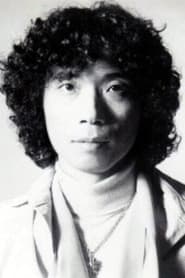Stomu Yamashta
Composer
Stomu Yamashta (or Yamash'ta), born Tsutomu Yamashita (山下勉, Yamashita Tsutomu, 15 March 1947), is a Japanese percussionist, keyboardist and composer. He is best known for pioneering and popularising a fusion of traditional Japanese percussive music with Western progressive rock music in the 1960s and 1970s. In the latter part of the 1970s, he led the supergroup Go with Steve Winwood, Al Di Meola, Klaus Schulze, and Michael Shrieve. Yamash'ta was born in Kyoto, Japan on 15 March 1947. He entered to study at the Kyoto Academy of Music in 1960. His father was the director of the Kyoto Philharmonic, and...
Born: March 15, 1947 (Age 77) in Kyoto, Japan
Streaming Sources for all Stomu Yamashta Movies & TV Shows

